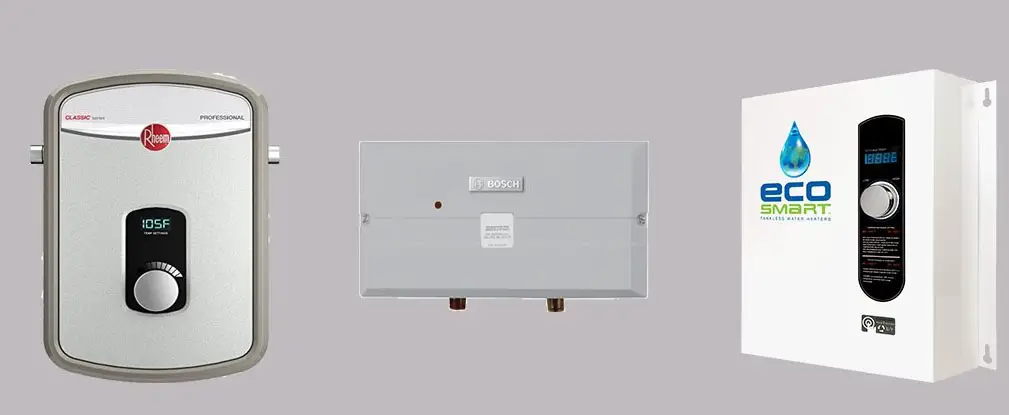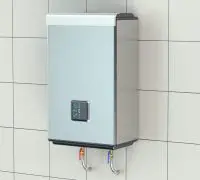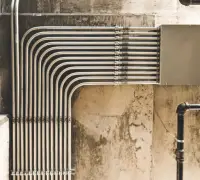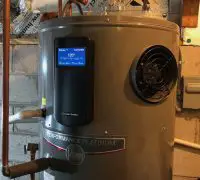If you're looking to fix or replace your Heating or A/C system, we can connect you with a reliable and cost-effective professional in your area.
Let’s skip the part where you’re sitting on the fence about whether you should switch to tankless water heaters or not. There are many reasons for which you should install tankless water heaters, without ever forgetting about the downsides.
Let’s say you’re now at the moment when you need to decide if you should go electric or gas. Should you come to have your mindset on electric, you’re likely going to ask yourself, “is it worth it, though?”
Page Table of Contents
Electric units do need plenty of juice!
According to some professionals, the costs of operating a tankless water heater will be just as high as the costs of running a traditional heater with tanks. However, the tankless model will require an oversized electric service, which can increase the initial investment.
The local electric utility has its downsides as well since it needs to ensure high-current electricity in short bursts.
For example, a tankless water heater for the entire house will need more than 25,000watts of electricity and uses a 150-amp, 240-volt breaker. Most households aren’t going to need that much, though. The traditional water heater with the tank will draw even less than 5,000watts, and it will present quite low standby losses. When you’re not home, you may simply turn the tank-style heater off.
Why not think outside the box?
Installing a low-flow showerhead (drawing 1GPM) could help lower the size and power needs of the tankless water heater, bringing it down to somewhere less than 10,000watts.
At 1GPM, a 10-gallon under the cabinet tank heater storing water at 140F degrees could be enough for an 8minute shower. Hot water systems are supposed to ensure low daily volume uses (dishwasher has 305gallon, whereas showers go from 5 to 20gallons), or high volume uses (filling a bathtub requires 35-80gallons).
Some professionals recommend using both tankless and heaters with tanks in a home to gain better efficiency for each sort of use.
Is it better to have more than one?
Some people are lucky and only need a single tankless water heater their home, whereas others should think about installing a second unit. The problem with electric tanks is that the recovery rate is slow, especially when compared to natural gas. Should you install two tanks, you may very well have them work independently in different areas.
For instance, if you need hot water in two rooms that are more than 20ft apart, it’s better to have a heater near every bedroom.
What are the losses?
Standby losses in electric tankless water heaters are quite small, and increasing the volume of the tank isn’t going to change it much. To control the energy losses, you need to install at least R-3 worth of insulation on all 3/4in distribution plumbing, as well as on 1/2in line of some length. You have to insulate the pressure and temperature relief valve. Do the same for the first 5-10ft of outflow piping from the pipe.
Truth be told, it’s ideal to install a tankless electric water heater really close to the shower or sink where you’ll use the hot water. Most homes present an essential distance between the water heater and the fixtures needing hot water. When you install a tankless water heater, you will cut down all the heat and losses by a lot.
At the end of the day, an electric tankless water heater is worth it as long as it’s close to the fixture/room it is sustaining. The tankless water heater will draw whatever it needs and when it needs it.
What’s the final take?
When you don’t have space for a tank, and limited availability of gas, the electric tankless water heater definitely makes sense. As long as you’re aware of the downsides and the necessity of a flywheel system, an electric tankless water heater may be the perfect solution for many.
We can definitely connect you with a trusted provider in your area to repair, replace or maintain your heating and A/C systems. Why not let us find a professional for you?






